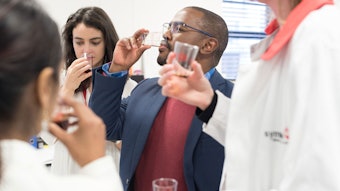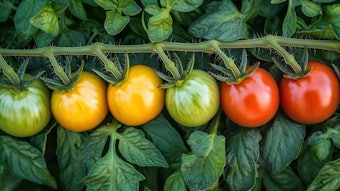
Givaudan has launched its latest white paper entitled, The Protein Horizon: the landscape of alternative protein technologies enabling future food experiences, its fourth collaboration with the University of Berkeley, California. This paper provides cutting-edge information on current, emerging and future technologies for manufacturers producing meat and fish alternatives.
It is said that the research takes a future perspective, highlighting the benefits of emerging 3D printing technology, the "near future" techniques of cultured meat, and Mycelium biomass fermentation producing fungi-derived protein. It also looks further over the horizon to lab-scale technologies such as shear cell, which is set to attract significant investment. Given no single technology is the "silver bullet," collaboration across companies and organizations is essential for creating delicious and nutritious meat alternatives.
Sudhir Joshi, product development program coach at the University of California, Berkeley, stated, “The rise of meat alternatives is significant. The market is poised for rapid growth. While the existing technologies offer a major opportunity for innovation, the main challenges in this sector remain cost and scale.”
“This new white paper provides a comprehensive review of current and upcoming technologies. It also offers insights into adoption, market potential, challenges and the opportunities for future development.”
Flavio Garofalo, Givaudan’s global director, Culinary & Plant Attitude, said, “Givaudan’s wide-eyed-thinking and passion for creating outstanding future food experiences [are] at the heart of our ongoing collaboration and research with [the] University of California, Berkeley. We have an insatiable appetite for knowledge and understanding that ultimately leads to innovative breakthroughs.”
Flavio continues, “Only by working together can we build the eco-systems necessary to develop the meat and fish alternative proteins of tomorrow. Our ongoing research with Berkeley is a great example of the kind of collaboration that will allow us to imagine the future of alternative proteins.”
In addition to its partnership with Berkeley, Givaudan is also actively working with some of the latest technologies in collaboration with Bühler and Migros, with whom it has formed the Cultured Hub, in Kemptthal, Switzerland, working on cultured meat, cultured fish and seafood, and precision fermentation.
The Hub is part of Givaudan’s network of alternative protein innovation centers across four continents that includes MISTA in California, the Protein Innovation Centre in Singapore, the Protein Hub in Zurich, as well as the forthcoming Tropical Food Innovation Lab in Brazil.
Want to know everything going on in flavor & fragrance? Sign up for P&F+'s newsletter. You can also follow along on Instagram and LinkedIn.










